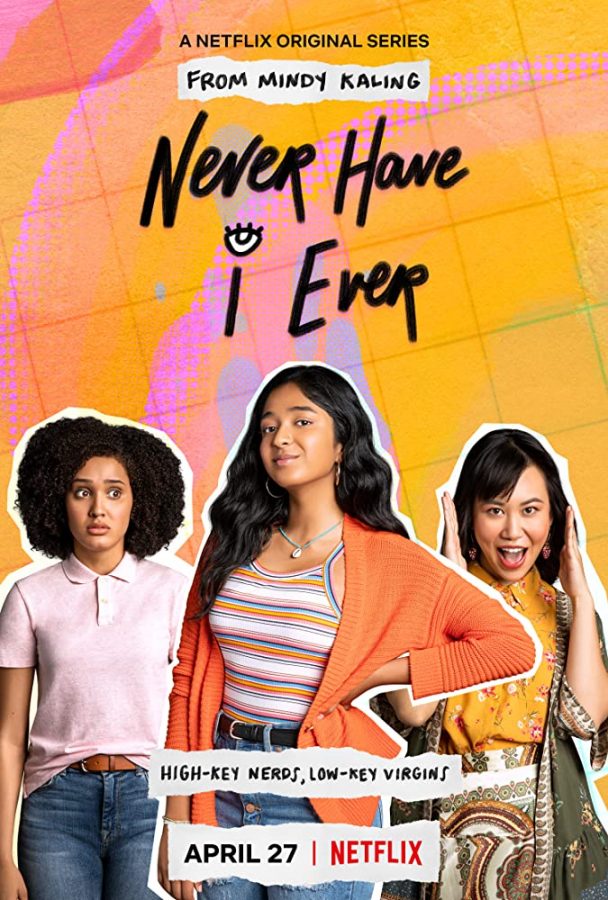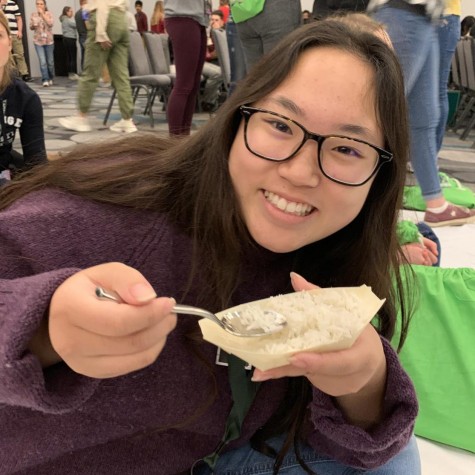The raunchy party game Never Have I Ever is best known for its role in revealing the most unsuspecting people’s most risque hidden sides.
Befitting the divulging nature of the party game, Netflix’s new original series, created by Mindy Kaling, effortlessly delivers a refreshing take on the tried and true genre of coming-of-age comedies.
“Never Have I Ever” surrounds the antics of 15 year old Devi as she navigates her sophomore year of high school, battling the grief from her dad’s sudden death in the middle of an orchestra concert, overcoming the shock from a newly recovered three-month period of paralysis in her legs and juggling the usual “sexpectations” plaguing high schoolers.
Among the most exceptional aspects of the show includes the well-crafted characters and the raw authenticity with which Kaling approaches the show’s issues — from hard-hitting, deeper issues like grief and identity issues to more light-hearted (but relevant nonetheless) issues like friendships and romantic pursuits.
Portraying Devi’s journey through her grief is not taken lightly throughout the show. Through scattered flashbacks, viewers glimpse fleeting moments of her dad before his death. The show is consistent in dissecting Devi’s complex relationship and feelings toward her mom — often juxtaposing her mom and her dad in her memories. While in her flashbacks, her mom can often be seen yelling at chastising her, her dad remains a steady mediator and a constant source of happiness.
In episode 8 of the series, despite having kissed the boy with whom she’s infatuated, she spends the night awake fretting over a triggering moment from earlier that night. Kaling ensures that Devi is a real teenage girl with real, inconvenient emotions, and not just another girl on TV whose complex problems can vanish with the appearance of a random boy.
With the addition of details like Devi’s harp playing, Kaling orchestrates a beautiful journey of recovery starting from the first episode and seemingly resolving in the ninth. Although the first episode depicts the orchestra as an altogether pitiful engagement for Devi at her school, Devi’s harp skills are not cast aside. In episode 9, though a painful process, Devi forces herself to pick up the harp — a prominent symbol of her dad and her happier memories. For the first time since her dad’s death, she is able to play a song, marking a monumental step toward recovery.
Although the tear-inducing moments in the series are plentiful, some of the show’s greatest merit stems from its humor, which is also abundant. Aside from Devi’s witty one-liners (which there are no shortage of), Devi’s exchanges are almost always comical. Whether she banters with her nemesis-turned-friend-turned-love-interest or she embarrasses herself in front of her potential-sex-partner-turned-platonic-friend-turned-love-interest or she verbally demolishes a side character, Devi is guaranteed to procure a laugh.
While “Never Have I Ever” certainly doesn’t aim to portray the traditional teenage American experience, it succeeds in offering a fresh perspective that often gets overlooked by Hollywood: what may or may not be the quintessential first-generation Indian-American teenage experience.
Then again, however, Devi is awkward, emotional and just lovable enough to win the heart of whoever is watching. Viewers who come with an open mind and a willingness to feel are sure to find not only something to relate to, but also something to look forward to in the future.










